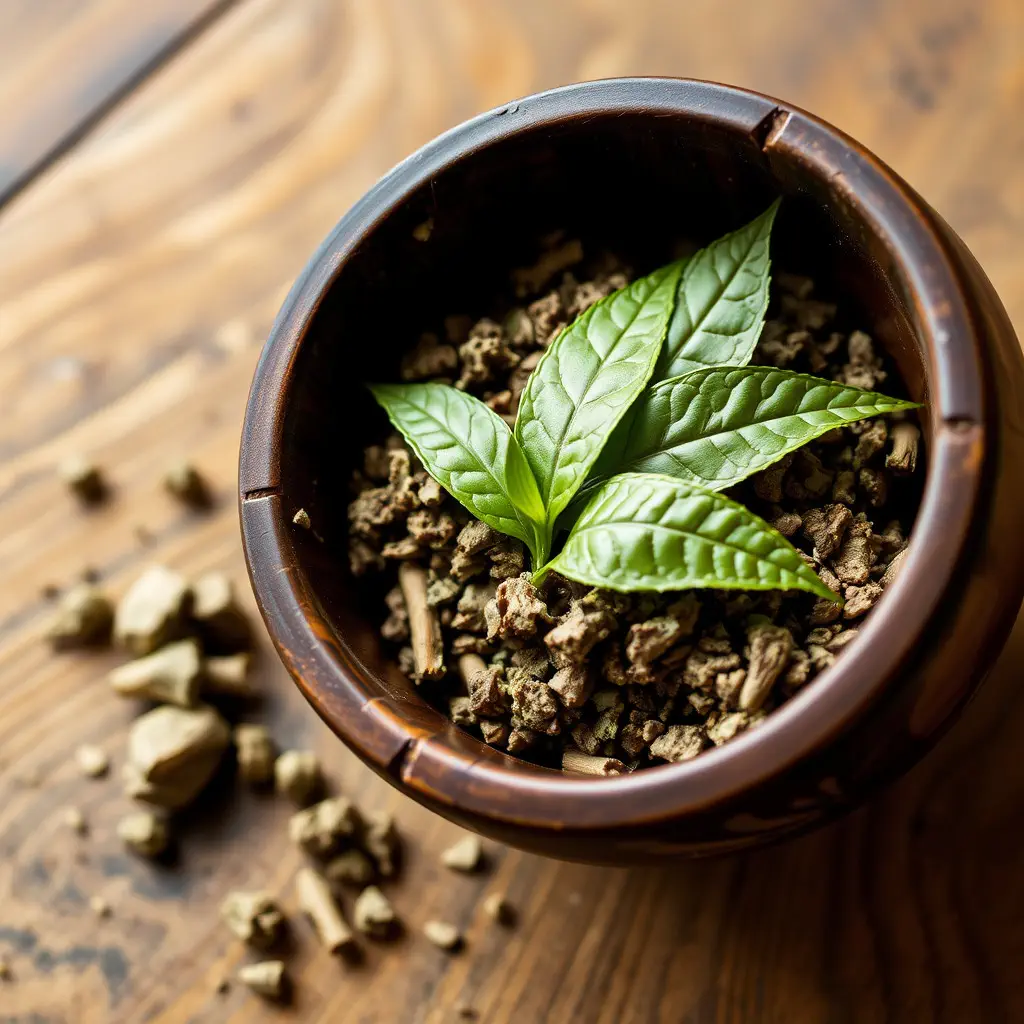Kratom, sourced from the Mitragyna speciosa tree, is increasingly recognized as a natural remedy for muscle relaxation and stress management. Its analgesic effects are due to the interaction of compounds like mitragynine and 7-hydroxymitragynine with opioid receptors in the body, providing relief from muscle tightness and psychological discomfort. Users often report a calming effect that can be particularly beneficial after physical exertion or for those coping with chronic stress. However, it's essential to approach kratom use cautiously due to the variability in individual responses and the strength of different strains. The legal status of kratom varies by region, so one must be aware of local laws before using it. It's also crucial to consider dosage carefully and understand personal physiology for safe usage. For a well-rounded approach to stress management, combining kratom with other relaxation techniques like yoga or meditation can enhance its benefits. Always consult with healthcare professionals before incorporating kratom into your health regimen due to potential interactions with other substances or medications, and because the long-term effects are still under review by health authorities. Incorporating kratom judiciously within a balanced lifestyle that includes proper nutrition, hydration, and rest can contribute to effective muscle relaxation and stress reduction.
Navigating the complexities of tension and stress is a universal human endeavor. In today’s fast-paced world, finding effective, sustainable ways to relax muscles and alleviate stress is more critical than ever. This article delves into the potential of kratom as a natural approach for muscle relaxation with kratom, exploring its efficacy in managing stress. We will examine how incorporating kratom can be a pivotal element in a comprehensive tension reduction routine, promoting overall well-being and tranquility. Join us as we explore the nuances of this botanical compound and its role in holistic health practices.
- Unwinding Through Muscle Relaxation: The Role of Kratom
- Exploring Kratom's Efficacy in Stress Alleviation
- Integrating Kratom into a Holistic Tension Reduction Routine
Unwinding Through Muscle Relaxation: The Role of Kratom
Muscle relaxation through the use of kratom has gained attention as an alternative method for stress and tension alleviation. Kratom, derived from the leaves of the Mitragyna speciosa tree native to Southeast Asia, interacts with the body’s opioid receptors, potentially offering analgesic effects that can ease muscle tension. The active compounds found in kratom, notably mitragynine and 7-hydroxymitragynine, are believed to play a role in this process, helping to reduce sensations of pain and discomfort, thereby facilitating relaxation. Users often report a sense of calm and reduced muscular tightness after ingesting kratom, which can be particularly beneficial for those experiencing chronic stress or physical strain. It’s important to approach the use of kratom with caution, however, as its effects can vary greatly depending on dosage, individual physiology, and the specific kratom strain used. Proper dosing and adherence to safety guidelines are crucial when incorporating muscle relaxation with kratom into one’s stress management routine. Additionally, the legal status of kratom varies by region, so it is essential to be aware of local laws and regulations before use.
Exploring Kratom's Efficacy in Stress Alleviation
Kratom, a plant from Southeast Asia, has garnered attention in discussions surrounding stress and muscle relaxation. Its leaves contain compounds that can interact with the brain’s opioid receptors, potentially offering relief from both physical discomfort and psychological distress. Users often report that kratom aids in muscle relaxation with kratom, which is particularly beneficial for those experiencing tension-related muscle stiffness or pain. The effects of kratom can vary depending on the dosage and strain; however, at proper doses, it may alleviate symptoms of stress, promoting a sense of calm and well-being.
The efficacy of kratom in stress alleviation is subject to ongoing research and scientific investigation. Preliminary studies suggest that its active ingredients, mitragynine and 7-hydroxymitragynine, may influence the brain’s neurotransmitters, such as dopamine and serotonin, which are pivotal in mood regulation. While some users anecdotally attest to kratom’s stress-relieving properties, it is crucial to approach its use with caution due to its potential for both therapeutic and adverse effects. It is important to note that while kratom may offer a natural alternative for muscle relaxation with kratom, its legal status varies by region, and it should be used responsibly under the guidance of a healthcare professional.
Integrating Kratom into a Holistic Tension Reduction Routine
Kratom, a plant originating from Southeast Asia, has been increasingly recognized for its potential to aid in muscle relaxation with kratom and stress reduction. Within a holistic tension reduction routine, kratom can be a valuable component due to its unique alkaloid profile. The alkaloids present in kratom leaves, primarily mitragynine and 7-hydroxymitragynine, interact with the body’s opioid receptors, which can lead to a sense of calmness and relief from muscular tension. Users often report a feeling of tranquility and ease, which can be particularly beneficial after a physically demanding day or during periods of heightened stress.
To effectively integrate kratom into a holistic routine for tension and stress alleviation, it’s important to approach its use with mindfulness and intention. This means considering the right dosage, strain, and timing that suits one’s individual needs and sensitivities. Additionally, combining kratom with other relaxation techniques such as yoga, meditation, or deep-breathing exercises can enhance its effects. Moreover, maintaining a balanced diet, staying hydrated, and ensuring adequate sleep further complement the use of kratom for comprehensive tension and stress management. It’s crucial to consult with healthcare professionals before incorporating kratom into any health regimen, as it may interact with other substances or medications, and its long-term effects are still under scrutiny by various regulatory bodies. With careful consideration and professional guidance, kratom can be a harmonious addition to a holistic approach aimed at muscle relaxation with kratom and reducing overall stress levels.
Muscle relaxation with kratom has emerged as a significant component in strategies aimed at alleviating tension and stress. The article delineates how kratom can be an effective tool, integrating it into holistic practices to achieve a balanced state of well-being. By exploring its efficacy and proper application within a comprehensive tension reduction routine, individuals may find relief from the pressures of daily life. It is clear that incorporating muscle relaxation with kratom, when done responsibly and as part of a broader health approach, can contribute to stress mitigation. As such, those interested in natural methods for tension relief should consider this approach as one avenue among many to enhance their mental and physical health.






